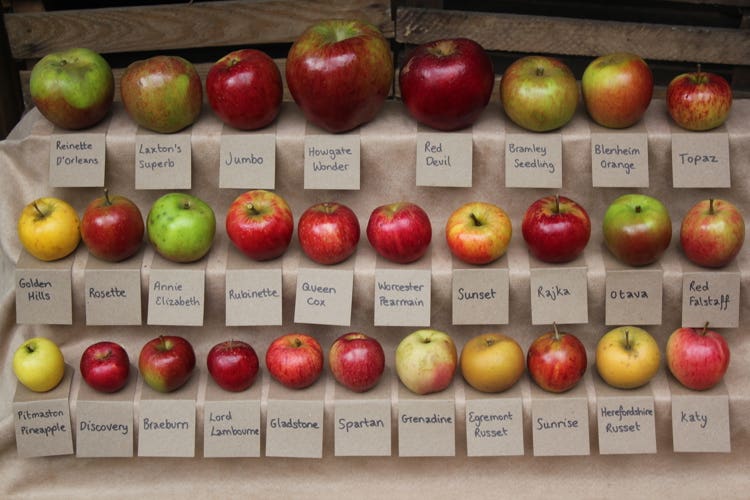Eating Slower Can Significantly Reduce Obesity Risk
New findings suggest that slowing down your meals could play a key role in managing your weight and overall health.

New research reveals that simply eating slower, chewing thoroughly, and taking smaller bites can significantly reduce obesity risk. (CREDIT: Elena Kharichkina / Adobe Stock)
Obesity remains a global health crisis, often linked to serious diseases such as diabetes, heart disease, and fatty liver disease. While many people know the importance of what foods to eat, recent research highlights that how you eat might be just as important.
New findings from a study at Fujita Health University in Japan suggest that slowing down your meals could play a key role in managing your weight and overall health.
Understanding Eating Habits and Obesity
Doctors have long known that obesity isn't simply caused by eating unhealthy foods. It's also connected to how the brain responds to eating. Foods high in sugar and fat strongly activate the brain’s reward system. This powerful reaction overrides normal appetite signals from your body, often leading to overeating.
Eating behaviors such as how quickly you chew, meal duration, and how many bites you take all influence how much food you consume. People who eat quickly usually eat more, increasing their risk of obesity and related health issues. Although experts recommend eating slowly, clear guidelines on how to effectively change eating habits have been lacking, especially in cultures like Japan, where eating practices differ from the West.
Exploring the Science Behind Slower Eating
A research team led by Professor Katsumi Iizuka recently investigated how various eating behaviors affect meal duration. Their study, published in the journal Nutrients, involved 33 healthy participants between 20 and 65 years old. Participants were given a small meal—one-fourth slice of pizza—and researchers carefully measured how long they took to eat, counting chews, bites, and chewing speed.
Participants repeated the task under different conditions, including wearing headphones that played rhythmic sounds at various tempos, from very slow (40 beats per minute) to very fast (160 beats per minute). The goal was to see if external rhythms could change eating speed and patterns.
Related Stories
Interestingly, the study found clear differences in eating habits between men and women. Women generally took more time to finish their meals, averaging 87 seconds compared to men's 63 seconds. Women also chewed more (107 chews versus men's 80) and took more bites (4.5 compared to men's 2.1).
Although chewing speed—the rhythm of chewing—was similar for both sexes, the longer meal duration among women was connected to taking more bites and chewing more thoroughly. This evidence suggests that encouraging these habits could benefit people who struggle with overeating.
Chewing More to Eat Less
When scientists adjusted the data to account for gender differences, they discovered that meal length strongly depended on the number of chews and bites, rather than body weight or chewing speed alone. Simply put, chewing more and taking smaller bites naturally extends the time it takes to finish a meal, helping people feel full sooner and possibly reducing food intake.
An unexpected finding emerged when rhythmic stimulation from a metronome was introduced. Participants eating to a slow rhythm (40 beats per minute) significantly extended their eating time compared to those without rhythmic cues. They also took more bites and chewed more frequently, even though their chewing speed slowed down. This discovery points to an easy and practical method—slowing the dining environment—to help control food intake.
Professor Iizuka emphasizes the practical value of the findings. "These are easy, money-saving measures that can be started right away to help prevent obesity," he says. Rather than costly diet programs or complex meal plans, people can make immediate changes by simply adjusting their eating habits.
In Japan, the Ministry of Agriculture, Forestry, and Fisheries already recommends eating slowly by concentrating on chewing, taking smaller bites, and avoiding putting more food in your mouth while still chewing. This study backs these recommendations with scientific evidence and provides a clearer path for effective nutritional advice.
Future of Nutritional Guidance
The study's results highlight the need for a shift in obesity prevention strategies. Instead of focusing solely on calories or food types, incorporating behavioral guidelines could be more effective. Professor Iizuka suggests that adopting slow eating methods in school cafeterias or workplace meal programs could have lasting benefits. "Incorporating the proposed eating behavior into school lunches and other programs can lead to the prevention of future diseases related to obesity," he adds.
Despite these promising findings, researchers acknowledge the need to study a broader variety of foods. The current research was based on pizza slices, but future tests with different textures and meal types are essential to confirm these benefits across diverse eating scenarios. Still, the study provides strong support for integrating these simple eating practices into daily life immediately.
Creating the Ideal Eating Environment
The impact of the eating environment, such as music or rhythmic sounds, remains somewhat controversial. Restaurants often use background music, but the direct effect of music tempo on food intake and meal satisfaction is debated. However, this study clearly indicates that slow, rhythmic sounds significantly prolong meal duration, leading to fewer calories consumed.
While chewing tempo is largely set by the brain's internal rhythm generator, external stimuli like calm music or rhythmic sounds could gently encourage slower eating. Adopting such environmental cues might be especially useful in group settings or public dining areas, helping people naturally adjust their eating habits without feeling forced or uncomfortable.
Small Changes for Big Health Benefits
Ultimately, the research demonstrates that simple changes in eating behavior—such as chewing more thoroughly, taking smaller bites, and slowing down meals—can offer substantial health benefits. These techniques cost nothing, require no specialized training, and fit seamlessly into daily routines. With obesity affecting millions worldwide, these practical solutions hold significant promise.
As Professor Iizuka concludes, adjusting how you eat, not just what you eat, could become a powerful tool against obesity. By applying these easy strategies, individuals can make meaningful progress toward better health and a lower risk of obesity-related diseases.
Note: The article above provided above by The Brighter Side of News.
Like these kind of feel good stories? Get The Brighter Side of News' newsletter.
Rebecca Shavit
Science & Technology Journalist | Innovation Storyteller
Based in Los Angeles, Rebecca Shavit is a dedicated science and technology journalist who writes for The Brighter Side of News, an online publication committed to highlighting positive and transformative stories from around the world. With a passion for uncovering groundbreaking discoveries and innovations, she brings to light the scientific advancements shaping a better future. Her reporting spans a wide range of topics, from cutting-edge medical breakthroughs and artificial intelligence to green technology and space exploration. With a keen ability to translate complex concepts into engaging and accessible stories, she makes science and innovation relatable to a broad audience.



